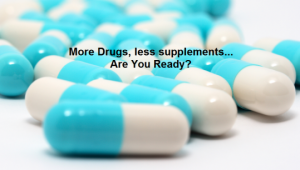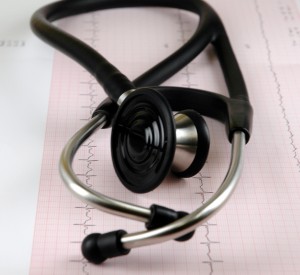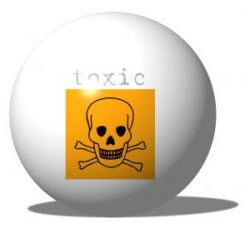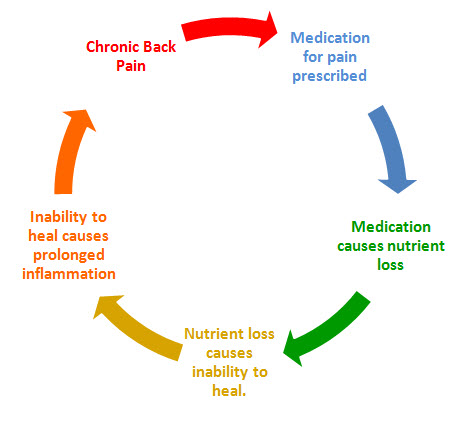“We have one and a half million heart attacks in the U.S.each year. About 50 percent have normal cholesterol. Clearly, current guidelines are not adequate to identify all those individuals who are at increased risk,”
Nader Rifai, MD(2004)
Statistically speaking, cholesterol levels have zero relevance in determining heart attack risk. A 50-50 chance, after all, means a coin flips worth of certainty. But that’s not all: people with the highest cholesterol may also live the longest…
Consider the finding of Dr. Harlan Krumholz of the Department of Cardiovascular Medicine at Yale University, who reported in 1994 that elderly with low cholesterol died twice as often from a heart attack as did the elderly with high cholesterol. His research also showed that people with higher cholesterol lived longer than those with lower cholesterol.
Cholesterol has long been blamed for the epidemic of heart disease in this country, despite hundreds of peer reviewed studies indicating that – to the contrary – low cholesterol levels may increase the risk of dying from infection, stroke, cancer, and yes, even heart attack itself. Consider the fact that there are scientific organizations composed of concerned scientists and physicians whose sole purpose is to point out inaccuracies of the cholesterol theory of heart disease. For more elaborate information please visit www.thincs.org
The Term “Bad Cholesterol” is a Myth
Let’s begin by acknowledging that cholesterol is an essential substance produced by nearly every cell of our body, and the building block for the cell wall, bile salts, vitamin D, steroid hormones, the myelin sheath of the nerves, and 30% of our brain tissue. LDL or so-called “bad cholesterol,” transports antioxidants throughout the body and helps fight bacterial infection. How can something that has so many important functions be so bad for you?
High Cholesterol is not a Disease
It is unscientific to call high cholesterol a disease. Elevations in cholesterol are often times normal reactions to events in the environment. Cholesterol production is extremely variable and depends on many factors. Take into consideration the following: When we have allergy flare ups during the Spring or Fall, our cholesterol can increase to help support immune function. Catching cold or the flu can cause temporary elevations in cholesterol. Contrary to popular belief, diets high in processed grains can cause elevations in cholesterol. And to top it off, medications prescribed for the following conditions elevate cholesterol: high blood pressure, hormone contraceptives, asthma, chronic pain, and acne.
So, why have we been fixated on cholesterol as the enemy for all these years?
The answer to that question has to do with the sad fact that the National Cholesterol Education Program (NCEP) guidelines were written under tremendous bias. Of the nine members who wrote the guidelines, 8 had direct financial ties to the pharmaceutical companies that profit from the sale of cholesterol lowering medications. Additionally, the research used to base the NCEP guidelines was paid for by the pharmaceutical industry.
Treating Symptoms Doesn’t Work
Despite medical intervention, there are more than 80 million cases of cardiovascular disease (CVD) in the U.S. Cholesterol lowering medications cost U.S. taxpayers more than 10 billion annually. If treating cholesterol with medicine was the answer, why do so many still suffer from CVD? Why does it still kill a million people every year?
What about the side effects of cholesterol lowering medications? Congestive heart failure, high blood pressure, muscle pain and weakness, fatigue, and nerve damage are some of the possibilities. What happened to the Hippocratic Oath – “First, do no harm”?
Heart disease is not caused by a lack of medication. Research and common sense continue to show that the best treatment lies with prevention. Cultures that do not consume processed refined foods have extremely low to no incidence of CVD. Diet and lifestyle play a much greater role than do genetics as we did not inherit heart disease from our ancestors. It is foolish to diminish the role that they play in health and wellness.
The bottom line – people are becoming more and more skeptical about the massive use of pharmaceuticals to treat disease. They are looking to find the contributing factors and causes of their ailments, not to treat the symptoms.
“The Doctor of the future will give no medicine but will interest his patients in the care of the human frame, in diet and in the cause and prevention of disease.” – Thomas Edison
Related Articles:
Cholesterol Myth
 If you take supplements as part of your approach to maintain good health or as part of your approach to naturally treat different health conditions, you should be warned that the FDA is getting ready to try and intervene with your ability to do so.
If you take supplements as part of your approach to maintain good health or as part of your approach to naturally treat different health conditions, you should be warned that the FDA is getting ready to try and intervene with your ability to do so.












